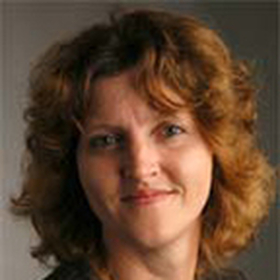

1954 Buford Avenue
St. Paul, MN 55108
United States
Gillian
Roehrig
Research statement
My research and teaching interests are centered on understanding how teachers translate national and state standards into teaching events and curriculum in their classrooms. Teachers’ knowledge and beliefs about teaching and learning directly influence the specific teaching practices implemented by teachers. Of particular interest is how teachers, from preservice through induction and into the inservice years, represent “science as inquiry” in their teaching and how different induction and professional development programs can influence teachers’ knowledge, beliefs, and classroom practices.
In addition, with the current national and state focus on K-12 engineering, my work focuses on STEM integration. This includes teacher professional development and curriculum development to prepare teachers for integrating engineering into their science classrooms.
Selected publications
Warfa, A., Roehrig, G., Schneider, J., & Nyachwaya, J. (in press). The Role of Teacher-Initiated Discourses in Students’ Development of Representational Fluency in Chemistry. Journal of Chemical Education.
McFadden, J., Roehrig, G.H., Ellis, J., & Anwar, T. (2014). Beginning Science Teachers’ Use of a Digital Video Annotation Tool to Promote Reflective Practices. Journal of Science Education and Technology 23(3), 458-470.
Guzey, S., Tank, K., Wang, H-H., Roehrig, G., and Moore, T. (in press). A High-Quality Professional Development for Teachers of Grades 3-6 for Implementing Engineering into Classrooms. School Science and Mathematics.
Dubinsky, J., Roehrig, G. H. & Varma, S. (2013). Infusing Neuroscience into Teacher Professional Development. Educational Researcher, 42(6), 317-329
Nam, Y. , Roehrig, G. H., Kern, A. L., & Reynolds, B. (2013). Perceptions and Practices of Culturally Relevant Science Teaching in American Indian Classrooms. International Journal of Science and Mathematics Education, 11(1), 143-167.
Roehrig, G.H., Michlin, M., Schmitt, L., MacNabb, C., & Dubinsky, J.M. (2012). Teaching Neuroscience to Science Teachers: Facilitating the Translation of Inquiry-Based Teaching Instruction to the Classroom. CBE- Life Science Education, 11(4), 413-424
Roehrig, G.H., Campbell, K.M., Dalbotten, D. & Varma, K. (2012). CYCLES: A Culturally-relevant Approach to Climate Change Education in Native Communities. Journal of Curriculum and Instruction, 6, 73-89
Roehrig, G.H., Moore, T.J., Wang, H.-H., & Park, M.S. (2012). Is adding the E enough?: Investigating the impact of K-12 engineering standards on the implementation of STEM integration. School Science and Mathematics, 112, 31-44.
Nyachwaya, J., Mohammed, A.R , Roehrig, G.H., Wood, N. , Kern, A.L. , & Schneider, J. (2011). The Development of an Open-ended Drawing Tool: An Alternative Diagnostic Tool for Assessing Students’ Understanding of the Particulate Nature of Matter. Chemistry Education Research and Practice, 11, 165-172
Roehrig, G. H., & Garrow, S. T. (2007). The impact of teacher classroom practices on student achievement during the implementation of a reform-based chemistry curriculum International Journal of Science Education, 29, 1789–181.
Education and background
Degrees earned
- Ph.D., Teaching and Teacher Education (Science Education), University of Arizona, 2002
- M.S., Physical Chemistry, University of Arizona,1993
- B.S., Chemistry and Mathematics, University of Southampton, U.K.,1990
Research interests
STEM Integration; Teacher Professional Development; Teacher Induction
Awards and honors
- Outstanding Faculty Award, Council of Graduate Students, 2010
- Institute on the Environment Resident Fellow
- Award IV: Innovations in Teaching Science Teachers, Association for Science Teacher Education, 2014
- Outstanding Mentor Award, Association for Science Teacher Education, 2013
Teaching statement
My teaching is centered on the preparation and mentoring of new secondary science teachers. The Teacher Induction Induction Network (TIN) is an online mentoring and support program for beginning secondary STEM teachers. This innovative approach to supporting new teachers includes video annotation that promotes the development of reflective practice and reform-based classroom instruction. TIN has received two national awards for best practices and innovation in science teaching from the Association of Public and Land-grant Universities and the Association for Science Teacher Education.
Courses taught
- Graduate STEM Education courses (CI 8132, CI8133, CI8570, CI8573)
- M.Ed. Science Education courses (CI5532, CI5539, CI 5540)
Recent presentations, invited seminars and workshops
Roehrig, G. H., Moore, T., Guzey, S. S. F, Tank, K. M. G, & Billington, B. F (2013, January). Integrating Engineering into Science Methods Courses. Association for Science Teacher Education, Charleston, SC.
Kern, A. L. F, Hougham, R. J., Roehrig, G. H., & Bhattacharya, D. G (March, 2012). Research-based Science Instruction for Climate Change: A Place-based Culturally Responsive Approach. Presented as part of the Research Dissemination Conference: Looking Toward the New Framework for the Next Generation Science Standards at the National Science Teacher Association, Indianapolis, IN
Roehrig, G. H., Moore, T. J., Tank, K. M. G, Wang, H-H, F & Guzey, S. F (March, 2012). An Investigation of Different Models of Integrating Engineering into Science Classrooms. National Science Teacher Association, Indianapolis, IN
Dubinsky, J., Roehrig, G.H., & Jeddeloh, K. (2011, January). The Role of Neuroscience in Inservice and Preservice Teacher Professional Development. Association for Science Teacher Education, Minneapolis, MN
Professional experience
- Assistant Professor, Department of Chemistry, San Diego State University
- High School Chemistry Teacher, Catalina Foothills High School, Tucson, AZ
Professional service
- Board Member, Association for Science Teacher Education
- Board Member, National Association for Research in Science Teaching
Current grants
- EngrTEAMS: Engineering to Transform the Education of Analysis, Measurement, and Science (January 2013 – December 2017) $7,998,075
- WSC-Category 2, Collaborative: Climate and human dynamics as amplifiers of natural change: a framework for vulnerability assessment and mitigation planning (September 2012 – August 2017) $4.3 million
- Inquiry-based Physical Science for Middle School Teachers (May 2011- June 2015), $208,394
- CYCLES: Teachers Discovering Climate Change from a Native Perspective (January 2011- December 2013), $675,841
- Region 11 Minnesota Mathematics and Science Teacher Partnership (MSTP) (June 2008 – July 2014), Total funding to date: $5,092,810.
- Project IMPACT: Improving Mathematics, Physics and Chemistry Teaching. (DUE #0833250, September 2008 - August 2014), $599,267